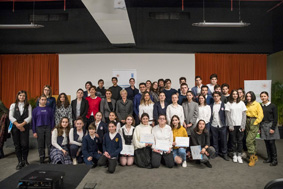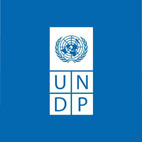Youth contest ‘Protect the Ozone Layer – Protect Life on the Earth’ held in Tbilisi
Friday, November 22


“It is good to see such passion and determination among Georgia’s youth to save our planet from the many threats it faces,” said UNDP Head Louisa Vinton. “UNDP hopes this contest will inspire youngsters to serve as ambassadors for a greener life-style and more sustainable consumption in their communities.”
“Young citizens of our country are expecting us to leave them a greener and safer world. Our responsibility is to live up to these expectations,” said EIEC Head Tamar Aladashvili. “Georgia has achieved impressive progress in phasing out most harmful substances that deplete the ozone layer. However, more needs to be done to promote a green life-style and environmental education and introduce sustainable production and consumption.”
The youth contest was announced as part of an information campaign launched by the Environmental Information and Education Centre (EIEC) and UNDP on 16 September 2019, the International Day for the Preservation of the Ozone Layer. More than 150 schoolchildren attended ozone-related seminars in September and October, which inspired 35 tenth graders to speak their minds in the contest for the best personal message about the ozone layer.
The three best essays written by the participants from Akhalgori, Kakheti and Tbilisi and the best video address made by a school student from Rustavi received acknowledgment and awards from EIEC and UNDP.
The Montreal Protocol is a global agreement to protect the stratospheric ozone layer by phasing out the production and consumption of ozone-depleting substances (ODS). Many world countries, including Georgia, have taken strong actions in the past decades to phase out most harmful substances, such as chlorofluorocarbons (CFCs) and hydrochlorofluorocarbons (HCFCs). With funds from the Multi-Lateral Fund to the Montreal Protocol, UNDP has been assisting Georgia since 2007 in fulfilling its national obligations under the Montreal Protocol. This support has included establishing and equipping recycling facilities and service centres in refrigeration and air conditioning, training programmes for refrigeration and air conditioning technicians and customs officers, and assistance to businesses and organizations in upgrading their equipment and moving to harmless refrigerants.
